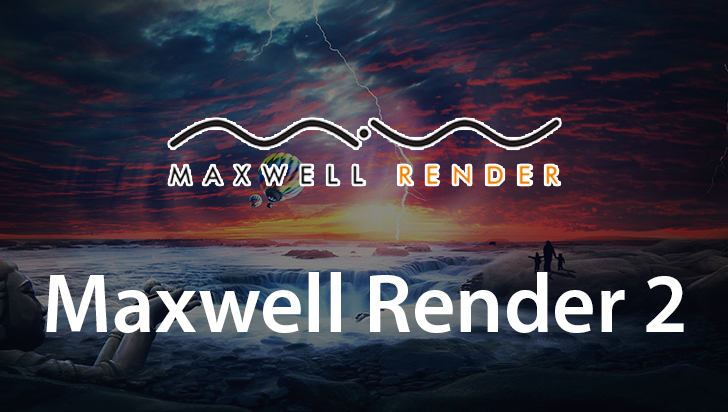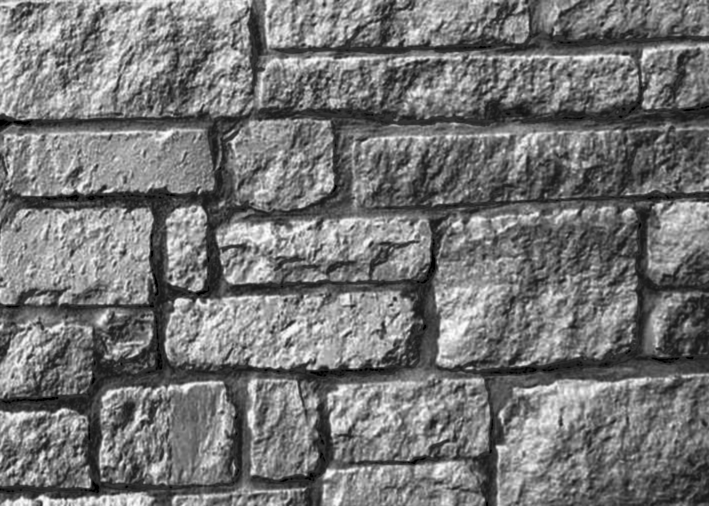FREE Maxwell Render for Sketchup (free version).
-
Thanks. I'm trying adjusting the bump strength. It didn't seem to help with using automatic/default, and I'm waiting on a render with the SSS settings noted above and will see how that goes.
I don't see any controls that say displacement. Is displacement the min/max settings? I haven't altered those at all from default...
-
Oops yes the setting is -100 (minus). Yes the bump should be covered in the manual. If your texture warrants it you can adjust strength with the settings. Bump and displacement are to create the 3d appearance for the texture. Sometimes you use a specific bump map to get the effect you want, or it might be based it on the texture itself.
-
No, displacement is another mode like bump (you choose it by clicking where it says "mode"), but capable of more extreme molding of the shape, and more time consuming than bump. You might look at this tutorial by Jason that has some information on bump. Clip number 3/8
http://www.maxwellrender.com/index.php/maxwell_for_google_sketchup/tutorials -
Great, thanks! Jason's videos are excellent, and really helped me in getting this far. I've already watched the first seven, but will look at #3 again...
-
Mate you will get all sorts of issues turning on displacement unless you divide the surface up a lot! Plus additional render times.
Peter is right that this material should work well just as automatic, though I would reset the colour in SU prior to rendering with fire and make any adjustments to the material in the plugin. Weird things can happen when you add colour to the material in SU.
Certainly SSS would be the right kid of material for this stone in the real world but use some caution rendering, and if you do use SSS then ensure the geometry has volume!
-
@richard said:
Mate you will get all sorts of issues turning on displacement unless you divide the surface up a lot! Plus additional render times.
I see that!

I tried displacement with around a 27mm setting, and it really didn't help me. I then tried 56mm, and I can't even get it to render. The manual states there are two different displacement modes (one with a note that it is harder to render than the other), but my computer isn't giving me a choice of displacement modes for whatever reason. Maybe that's all the free version has...
I'm going to try an in-between displacement size and see if that will render...
-
This thread has more info about using displacement based materials in SketchUp: http://www.maxwellrender.com/forum/viewtopic.php?f=107&t=38223
However I would avoid displacement based materials whenever possible if you are rendering within SketchUp since you are limited in RAM.
Materials are a very complex topic (possibly the most complex issue when dealing with Maxwell) and if you really want to learn more about them in depth then it might be worthwhile watching these series I made:

Maxwell Render 2 Training Videos
This VTC online course on Maxwell Render 2 is designed to get you up & running with Maxwell Render quickly & effectively. Sign-up today to learn more.
vtc (www.vtc.com)
They are both a little dated (mostly in the fact that they pre-date FIRE) -- but the materials related content is still valid and it would likely save you many hours of trial and error.
For instance, what you have here is not likely to make a good bump map because the contrast is too low -- which is perfectly natural considering it is white rock. So you would want to increase the contrast (and possibly modify the brightness as well) so that you get dark "darks" and light "whites" in the texture for the bump map, which will significantly improve your resulting detail (this can be done much better in Photoshop using levels if you know how). Here's a quick example of a what a better bump would look like:

When you start getting into textures you often come up against the issue of "baked in lighting" (as you have in this texture) which can be a real problem -- better quality textures are photographed in such a way as to reduce "baked in lighting"... which will make the resulting material render much better.Best,
Jason.
-
Thanks for your help, Jason. Are there any of these videos in particular that I should take a look at that best relate to this issue?
-
Not particularly -- it's more of the fundamentals of the material system (in relationship to the rendered output) and the SketchUp to Maxwell series expands on those ideas to talk about the embedded character-type materials and what their strengths and weaknesses are.
The idea is to get a solid foundation in what the various materials settings do in Maxwell and how you can bend them to your desired purpose with the least amount of trial and error possible.
If I've seen any one area where more people are confused than any other (in regards to Maxwell) it is definitely materials -- it is really important to understand the fundamentals of the system to avoid wasting your time... I would just start with the free videos and I bet that would be enough to answer many questions already for you.
Do bear in mind that I recommend anybody using the stand-alone plugin to download the trial version of the full Maxwell Render Suite to have access to MXED (allowing you to create your own custom MXM files for use in the plugin).
Best,
Jason. -
Thanks Jason! You've been a big help...
-
I've been considering adding some trees/bushes/etc. to my model. I looked through the Sketchup 3d warehouse, and tried out these two first:
When rendering in Maxwell, the both the tree and bush are rendering 2d/flat instead of 3d.
Should I be looking for a particular type of model that appears 3d in Maxwell? Is there something I can do to make the above ones (or others) appear 3d, even though they're showing 2d presently?
Thank you...
-
SketchUp can't convert a 2D image to 3D. Try searching the warehouse for a 3D tree.
-
Thanks. I thought these were both 3D models, since each page allows for a "3D View", but I guess not!

-
Can I keep Kerkythea plugin in SU at the same time or would it cause conflict?
-
I don't speak from experience but I don't see why the two would cause a conflict. You can save a copy of your plugins folder just in case though. If it causes an issue just go back to the copy.
-Brodie
-
I have been trying the free Maxwell plugin. It doesn't seem to be able to do two point perspective. I thought some renderers did. Anyone know which ones do off-hand? Maybe it was K-T which I haven't used in a long time.
-
Yes, I don't believe the real-time engine can do that. With the full version, however, that is able to be handled during the export process.
-Brodie
-
I exported a Maxwell scene and made many changes in GIMP etc. to make an image (background, color adjustments). Now I want to re-export a scene with a few specific things remodeled as an alternate design. I want to insert those changed areas into my previously developed image.
Maxwell Fire appears to depend on the size of the SU window on screen to setup the extents of the shot. I can set the pixel width but how do I exactly set the extents of the shot to what I had before. I am back at the same monitor and I might get close by guessing at the window size, but what if I were using my laptop monitor instead? If the file save from Maxwell fire is the exact extents and pixels, it's easy to overlay in PS. -
I cover custom aspect ratios in video 4/8 of this playlist:
Best,
Jason. -
Thank you Jason! I know I'd seen that before, but at the time I didn't know how I'd use it--so I guess it slipped my mind. That should do the trick.
Peter
Advertisement







